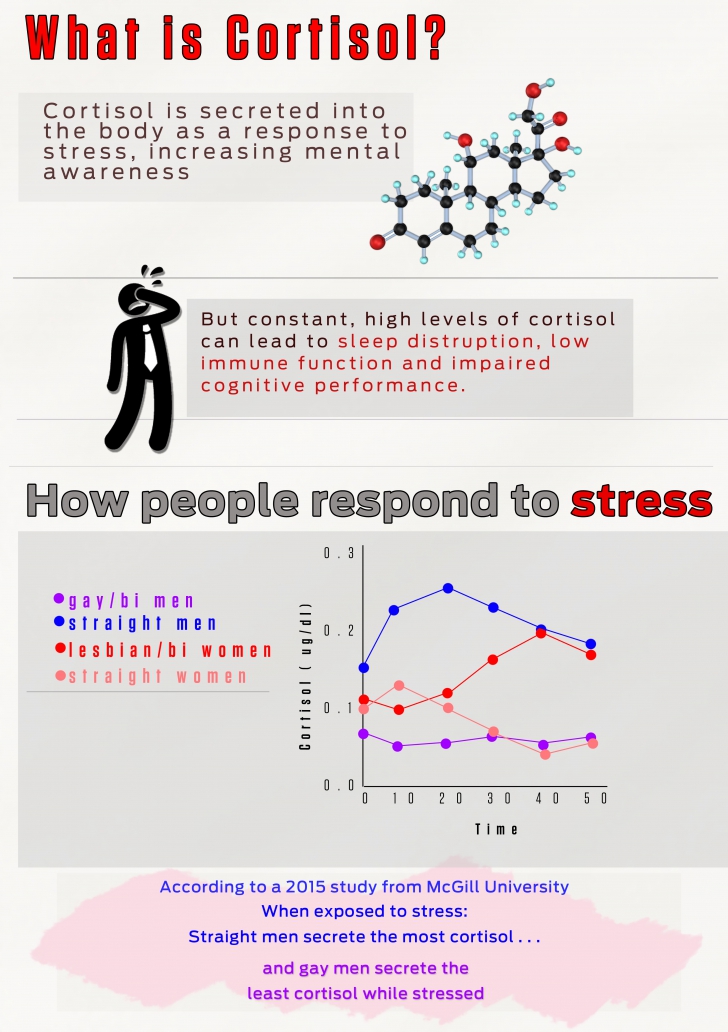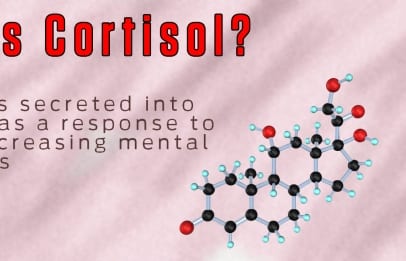Something funny is going on with gay people and stress. That’s the conclusion — and nearly the only conclusion — reached by McGill researcher Robert-Paul Juster when he stressed out gay people in his Montreal lab and watched what happened to the stress hormone cortisol.
Juster’s new study found that how we get stressed depends on sexual orientation; after that it gets a bit fuzzy.

(A McGill researcher has found some unexpected connections between gay men, lesbians, straight people and their stress levels in a lab./Daily Xtra)
How does this affect you? Good question.
Juster was curious how gay people would react to stress. He knew men produce more cortisol than women when stressed, and gay people are more stressed when they are closeted. Nobody had ever compared the stress responses of gay and straight people, however, and Juster thought the results might reveal another layer of social factors in stress.
He brought 87 gay, straight and bisexual participants into his lab, made them do stress-inducing math problems and a mock job interview, and watched what happened to the cortisol levels in their saliva.
Since gay men are exposed to stressors such as discrimination and homophobia on a daily basis (what psychologists call minority stress), you might think gay men would get more stressed than straight men. You would be wrong.
It turned out while straight men’s cortisol spiked 20 minutes after the stressor, gay men remained almost entirely unperturbed.
That’s a good thing, right? Not necessarily.
It could mean that gay men have suffered so much stress they no longer react. For example, one previous study found gay men living in American states with more discrimination had blunted cortisol reactions. While it’s possible that the Montreal gay men have simply developed better coping mechanisms for stress than straight men, it’s also possible their hormones have been pummeled into non-reactivity.
Which would mean lesbians should have lower stress reactivity too, right? Nope.
It turns out lesbians and bisexual women were more stressed than their straight peers, not less.
In fact, queer women reacted much more like straight men, and straight women reacted like gay men.
The only difference was that the queer women took twice as long to get stressed. Why? Juster thinks it might be because the queer women spent more time turning the stress over in their heads after the event, but for now that’s just a guess.
So what should we make of the mysterious difference between how gay men and women react to stress?
“That’s a really good question, and to be honest with you I have no clue,” Juster says. “I really don’t know how to explain it.”
What we have learned, Juster says, is that we shouldn’t lump gay men and lesbians together when it comes to stress.
Also, because Juster controlled for sex hormones such as testosterone and progesterone in his study, we now know stress reactivity is related to social factors and not just biology.
Fortunately, Juster still has his postdoctoral research to work it all out. “There’s a lot of follow up studies that I need to do to figure out what’s going on,” he says. “This is something I hope will stretch out through my entire career.”
Stay tuned.


 Why you can trust Xtra
Why you can trust Xtra


